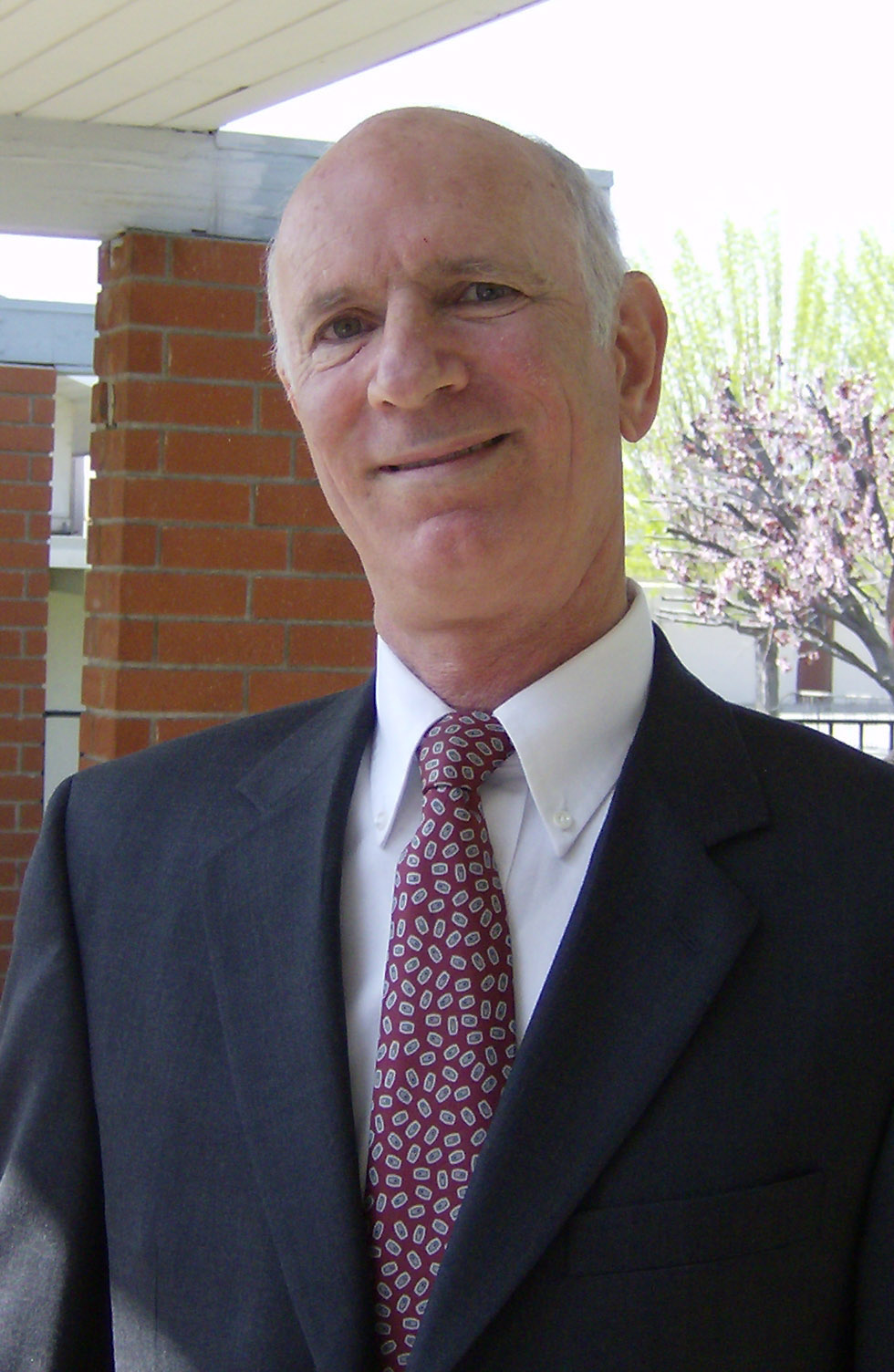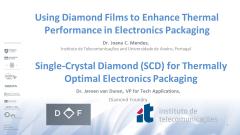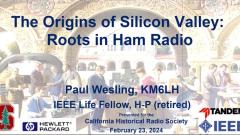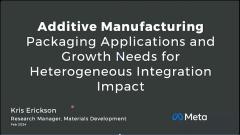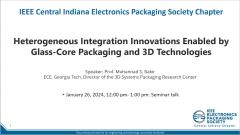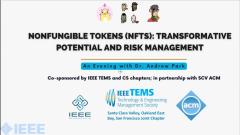(18:56 + Q&A) Dr. M. Fernando Gonzalez-Zalba, Quantum Motion Technologies -- Presentation from 2023 Workshop on Quantum Computing: Devices, Cryogenic Electronics and Packaging (QC-DCEP) ...
Summary: Spin qubits in silicon are a promising platform for scalable quantum computing due to their small footprint, VLSI compatibility and demonstrated operation fidelities above fault-tolerant thresholds. In the path to scaling, a key aspect is developing compact and fast high-fidelity readout techniques to enable highly connected qubit architectures as well as mid-circuit measurements, a necessary feature for many dynamic algorithms and quantum error correction. In this talk, I will introduce the concept of radio-frequency reflectometry for fast readout of spin qubits as a method to achieve the goal. By embedding the devices in radio- or microwave-resonant circuits, high-bandwidth and novel compact methods for readout can be implemented. I will review the state-of-the-art of the field and present a series of results that highlight improvements at all stages of the readout chain that enable achieving readout fidelities above fault-tolerant thresholds in timescales comparable to the gate operation times. First, at the device level, I will describe optimal device fabrication recipes and introduce methods to abstract spin qubit devices into classical circuit elements for efficient simulation. Then, at the resonator level, I will present optimized designs tailored to the specific measurement method. At the amplifier level, I will discuss quantum-limited techniques specific for spin qubit devices. Finally, I will show spin relaxation measurements as well as two-qubit coherent control using dispersive readout methods.
Dr. Fernando Gonzalez-Zalba is a Principal Quantum Engineer and heads the Quantum Hardware team at Quantum Motion Technologies, a UK-based start-up dedicated to the development of quantum computing hardware based on silicon technology. Fernando is also an UKRI Future Leader Fellow, Associated Lecturer at the University of Cambridge, Research Associate at University College London, and Quondam Fellow at Hughes Hall, a Cambridge College. Fernando’s research focuses on a variety of topics such as single-atom electronics, quantum sensing, quantum-limited amplification, cryogenic classical electronics, and new computing paradigms such as quantum computing. Prior to that Fernando obtained a PhD from the University of Cambridge with a thesis on Single-atom Electronics in 2013 and was Head of Quantum Computing at the Hitachi Cambridge Laboratory, a R&D centre of Hitachi Europe. His research has been funded by the European Commission’s FP7 and H2020 programmes, Innovate UK, EPSRC, the Winton Programme for the Physics of Sustainability and the Royal Society totalling more than £5.0M.
Additional videos from the QC-DCEP Workhop can be accessed at https://attend.ieee.org/qc-dcep.
(18:56 + Q&A) Dr. M. Fernando Gonzalez-Zalba, Quantum Motion Technologies -- Presentation from 2023 Workshop on Quantum Computing: Devices, Cryogenic Electronics and Packaging (QC-DCEP) ...
Summary: Spin qubits in silicon are a promising platform for scalable quantum computing due to their small footprint, VLSI compatibility and demonstrated operation fidelities above fault-tolerant thresholds. In the path to scaling, a key aspect is developing compact and fast high-fidelity readout techniques to enable highly connected qubit architectures as well as mid-circuit measurements, a necessary feature for many dynamic algorithms and quantum error correction ...
 Cart
Cart Create Account
Create Account Sign In
Sign In
